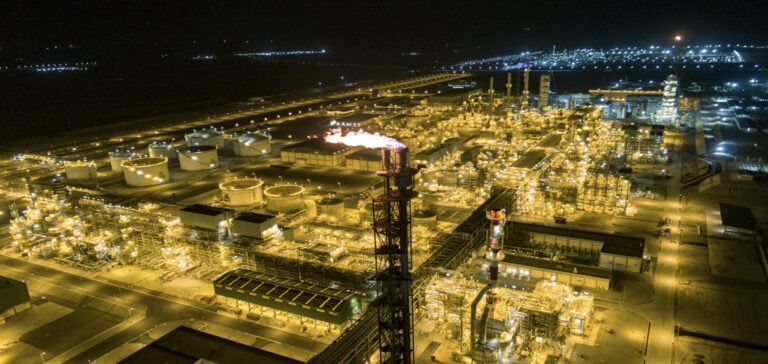Russian Gas to Uzbekistan is proving to be a major trilateral energy project. When politics and economics meet, bold decisions are made, and that’s exactly what Vladimir Putin, the Russian president, did recently. Against a backdrop of Western sanctions hitting the Russian gas sector hard because of the offensive in Ukraine, Putin has kicked off a major energy project with Uzbekistan, via Kazakhstan.
An unprecedented Trilateral Agreement
Last Saturday, in a solemn ceremony organized by vision-conference from his residence near Moscow, Vladimir Putin announced the start of Russian gas deliveries to Uzbekistan in the presence of his Uzbek and Kazakh counterparts, Shavkat Mirzioev and Kassym-Jomart Tokayev. He described the project as “important and significant” in the energy sector.
The aim of this initiative is twofold: on the one hand, it will enable hydrocarbon-rich Uzbekistan to diversify its energy sources, thereby strengthening its energy security. Secondly, it will provide Kazakhstan with a solution for gasification in its northern and eastern regions, meeting an essential development need.
Russia, Reliable Gas Supplier
Vladimir Putin emphasized that this project will showcase Russia as a reliable supplier of natural gas. At a time when the Russian gas sector has been hard hit by European and American sanctions in response to Russia’s military intervention in Ukraine in 2022, this new route to Central Asia offers a strategic opportunity.
Faced with a drastic reduction in gas exports to the European Union, Russian gas giant Gazprom has begun redirecting its exports to Asia, where demand for energy is growing rapidly. This trilateral energy project is part of this new strategy, demonstrating Russia’s agility in a complex economic context.
Future prospects
Finally, it’s important to emphasize that this cooperation between Russia, Uzbekistan and Kazakhstan is not limited to gas deliveries alone. It opens the door to future possibilities far beyond the energy sector. Discussions between the three executives will no doubt focus on these prospects, which could bring significant economic opportunities.
Final Analysis
This trilateral energy project between Russia, Uzbekistan and Kazakhstan is much more than a simple gas delivery. It embodies Russia’s resilience in the face of international economic and political challenges, and underlines its commitment as a key energy partner in Eurasia. As international markets rapidly evolve, Russia has found new ways to secure its role in energy supply. This bold initiative reminds us that economics, geopolitics and energy are inextricably linked, and that innovative solutions are needed to meet the challenges of the 21st century.






















